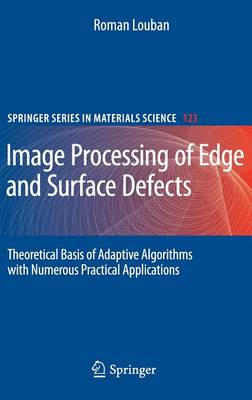Springer Series in Materials Science
1 primary work
Book 123
The human ability to recognize objects on various backgrounds is amazing. Many times, industrial image processing tried to imitate this ability by its own techniques. This book discusses the recognition of defects on free-form edges and - homogeneous surfaces. My many years of experience has shown that such a task can be solved e?ciently only under particular conditions. Inevitably, the following questions must be answered: How did the defect come about? How and why is a person able to recognize a speci?c defect? In short, one needs an analysis of the process of defect creation as well as an analysis of its detection. As soon as the principle of these processes is understood, the processes can be described mathematically on the basis of an appropriate physical model and can then be captured in an algorithm for defect detection. This approach can be described as “image processing from a physicist’s perspective”. I have successfully used this approach in the development of several industrial image processingsystemsandimprovedupontheminthecourseoftime.Iwouldlike to present the achieved results in a hands-on book on the basis of edge-based algorithms for defect detection on edges and surfaces. I would like to thank all who have supported me in writing this book.
